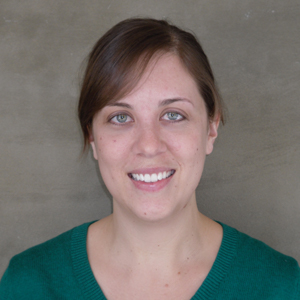From diapers to dissertation
Just like most fifth-year graduate students, I have a number of things on my mind: writing my thesis, finishing projects and figuring out what to do after graduation. However, in the past several months, you might say my mind has become occupied with a few other things as well: baby names, nursery themes, daycare facilities, and the list goes on.

After much consideration, my husband and I made the decision to have a baby while I was still in school. This was not a choice that came easily or quickly. In fact, I can remember many sleepless nights wondering if we knew what we would be getting ourselves into. Before coming to this decision, I had to reevaluate the timeline that 10 years ago I had somehow established in my mind: go to graduate school, get married, find a job, buy a house and then start a family, in that order. As I approached my fifth year of graduate school and a 30th birthday, I wondered: Who says it has to be done in a certain order? There are plenty of graduate students, including several in my own program, who have become mothers while working on a Ph.D. Why not me? While it might not be the right decision for everyone, we felt that it was the right time for us for several reasons.
One of the reasons that came to mind was stability with flexibility. Between my stipend as a graduate student (I am lucky to have a fairly generous one) and my husband’s job as a research technician, we felt that we had the stability to start a family. When I expressed concern to my mother once that I was not making as much money as I had envisioned myself making before starting a family, she was quick to remind me that while she was pregnant, she and my father both unexpectedly lost their jobs. She told me that even the best-laid plans do not always work out how you imagined, but you work with what you have. While we may not have the money to buy a top-of-the-line $1,100 stroller (yes, this stroller exists), we certainly have the means to provide for a baby. As for the flexibility, being a graduate student allows my schedule to have a little more versatility than a 9-to-5 job. There is no way to know that wherever I end up next, whether in a postdoc position, a job or a fellowship program, I will have the same benefit.
Secondly, and maybe most importantly, is support. A supportive spouse, a supportive family, a supportive adviser, a supportive graduate program: You get the idea. I remember being very nervous to tell my adviser that I was pregnant, which in hindsight I realize was ridiculous. I am fortunate to have a very understanding adviser. I am also fortunate that the graduate school has some great resources for graduate students with families, including the option of a six-week parental accommodation period and grant programs to help cover the cost of daycare. Also, I know that I can turn to any number of graduate students in my program who have recently had children whenever I need advice.
Someone once told me that if you wait for everything to be perfect before starting a family, you might be waiting forever. With this line of thinking, there will always be something holding you back. The important thing is that you are ready. The closer I get to my due date in May, the more anxious I become, yet I am eager to start this new chapter, even if 20-year-old me thinks the chapters are a little out of order. But then I ask myself, what does she know anyway?
Enjoy reading ASBMB Today?
Become a member to receive the print edition four times a year and the digital edition monthly.
Learn moreGet the latest from ASBMB Today
Enter your email address, and we’ll send you a weekly email with recent articles, interviews and more.
Latest in Opinions
Opinions highlights or most popular articles

Women’s health cannot leave rare diseases behind
A physician living with lymphangioleiomyomatosis and a basic scientist explain why patient-driven, trial-ready research is essential to turning momentum into meaningful progress.

Making my spicy brain work for me
Researcher Reid Blanchett reflects on her journey navigating mental health struggles through graduate school. She found a new path in bioinformatics, proving that science can be flexible, forgiving and full of second chances.

The tortoise wins: How slowing down saved my Ph.D.
Graduate student Amy Bounds reflects on how slowing down in the lab not only improved her relationship with work but also made her a more productive scientist.

How pediatric cataracts shaped my scientific journey
Undergraduate student Grace Jones shares how she transformed her childhood cataract diagnosis into a scientific purpose. She explores how biochemistry can bring a clearer vision to others, and how personal history can shape discovery.

Debugging my code and teaching with ChatGPT
AI tools like ChatGPT have changed the way an assistant professor teaches and does research. But, he asserts that real growth still comes from struggle, and educators must help students use AI wisely — as scaffolds, not shortcuts.

AI in the lab: The power of smarter questions
An assistant professor discusses AI's evolution from a buzzword to a trusted research partner. It helps streamline reviews, troubleshoot code, save time and spark ideas, but its success relies on combining AI with expertise and critical thinking.

